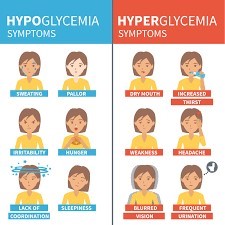A nurse is caring for a client who had abdominal surgery 24 hr ago. Which of the following actions is the nurse's priority?
Assess fluid intake every 24 hr.
Ambulate three times a day.
Assist with deep breathing and coughing.
Monitor the incision site for findings of infection.
The Correct Answer is C
- A. Assessing fluid intake every 24 hr is important for a postoperative client, but it is not the priority action. The nurse should monitor fluid intake and output more frequently, such as every 8 hr or every shift, to detect any imbalances or complications.
- B. Ambulating three times a day is beneficial for a postoperative client, but it is not the priority action. The nurse should encourage early and frequent ambulation to promote circulation, prevent thromboembolism, and enhance bowel function, but only after ensuring that the client is stable and has adequate pain control.
- C. Assisting with deep breathing and coughing is the priority action for a postoperative client who had abdominal surgery. The nurse should help the client perform these exercises every 1 to 2 hr to prevent atelectasis, pneumonia, and respiratory failure, which are common and serious complications after abdominal surgery.
- D. Monitoring the incision site for findings of infection is important for a postoperative client, but it is not the priority action. The nurse should inspect the wound for signs of infection, such as redness, swelling, warmth, drainage, or odor, but this can be done during routine dressing changes or as needed.
Nursing Test Bank
Naxlex Comprehensive Predictor Exams
Related Questions
Correct Answer is A
Explanation
Irritability.

The rationale for each choice is as follows:
- A. Irritability: Correct. Irritability is one of the signs of hypoglycemia, which occurs when blood glucose levels fall below 70 mg/dL (3.9 mmol/L). Other signs include shakiness, sweating, hunger, headache, confusion, and blurred vision.
- B. Increased urination: Incorrect. Increased urination is one of the signs of hyperglycemia, which occurs when blood glucose levels rise above 180 mg/dL (10 mmol/L). Other signs include thirst, dry mouth, fatigue, nausea, and fruity breath odor.
- C. Vomiting: Incorrect. Vomiting is not a specific sign of hypoglycemia or hyperglycemia, but it can occur as a complication of either condition if left untreated or poorly managed.
- D.Facial flushing: Incorrect. Facial flushing is not a sign of hypoglycemia or hyperglycemia, but it can occur as a side effect of some medications used to treat diabetes, such as niacin or rosiglitazone.
Correct Answer is C
Explanation
- A. Contacting the facility chaplain to visit with the client may be helpful for some clients who have spiritual needs or concerns, but it does not address the client's expressed desire to go home. The nurse should respect the client's wishes and preferences and not impose their own beliefs or values on them.
- B. Explaining the process of leaving the facility against medical advice may discourage the client from pursuing their goal of going home and imply that they are making a wrong decision. The nurse should not judge or coerce the client, but rather provide them with information and support to make an informed choice.
- C. Making a referral for social services is the best action for the nurse to take, as it will help the client access resources and services that can facilitate their discharge planning and home care arrangements. The social worker can also assist with financial, legal, or emotional issues that may arise from the terminal diagnosis.
- D. Encouraging the client to continue with inpatient care may go against the client's wishes and values, and may cause them more distress and suffering. The nurse should respect the client's autonomy and dignity and support their quality of life goals.
Whether you are a student looking to ace your exams or a practicing nurse seeking to enhance your expertise , our nursing education contents will empower you with the confidence and competence to make a difference in the lives of patients and become a respected leader in the healthcare field.
Visit Naxlex, invest in your future and unlock endless possibilities with our unparalleled nursing education contents today
Report Wrong Answer on the Current Question
Do you disagree with the answer? If yes, what is your expected answer? Explain.
Kindly be descriptive with the issue you are facing.
